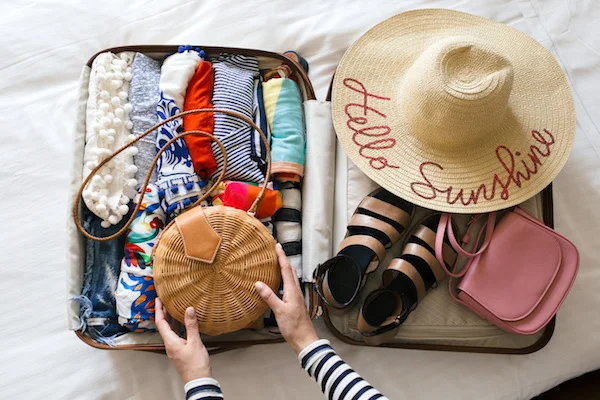Traveling internationally can be very exciting, you get to immerse yourself in different cultures, experience new things and indulge in great food. However, traveling abroad can be quite stressful if you’re not aware of the city. You will also be spending most of your time out and about exploring, so it’s very crucial to be cautious and take measures in order to stay safe on your trip.
Here are a few tips to staying safe during your study abroad experience:
1- Don’t carry everything together:
This is a common mistake most of us make, carrying all our belongings together in our wallet. It might be tempting to keep your cash, debit/credit cards, IDs and travel documents together in one place, but try avoiding this. Carry only the absolutely necessary cash and cards with you and leave the rest in a safe at your accommodation (this also helps you with budgeting your spending. Read more on this here).
Even when you are carrying cash and card with you, ensure to keep them in separate places in your bag, instead of putting them all together in your wallet. This safety tip prevents you from losing everything should somebody steal your wallet.
2- Don’t carry things in your back pocket:
Whilst we are talking about theft, pickpocketing is common in most part of the world and it specifically targets tourists. Hence it’s important you take measures in order to avoid this as much as possible. Avoid keeping anything in your back pocket. If you are carrying a backpack or any bag, make sure to wear it facing the front, so you can keep your eyes on your bag at all times. Ensure to also carry a sturdy bag, so it’s not easy for anyone to snatch that from you.
3- Leave the bling at home:
It might be tempting to wear your expensive accessories during your trip to take pictures with, but in the interest of your safety, don’t. The bling will only attract attention towards you for potential thieves and you want to avoid this as much as possible.
4- Avoid walking alone at night:
No matter where in the world you are, it’s a given to avoid walking alone at night. This holds even truer for unknown cities. If you have to be somewhere at night, try taking a friend along with you or take an uber/taxi. Ensure to inform someone from your cohort or your guardian at all times of your whereabouts.
5- Don’t bring attention to yourself as being a tourist:
You want to avoid anything that makes you look like a tourist. Tourists are usually easy targets for crimes, hence it’s important you are well aware of the places you are visiting. Make sure you do your research before going somewhere and always be aware of what’s happening around you and your surroundings.
6- Keep your friends and family posted on where you are:
As mentioned earlier, always inform someone whenever you are heading out. Let them know how you’ll be getting there, what your plan is and when you’ll be back. In case you are getting late, just send them a text letting them know. If you have an iPhone, it might be a good idea to share your location with your friend/family for monitoring purposes.
7- Make electronic copies of your documents:
You probably will be carrying several necessary travel documents during your study abroad trip. A good thing to do is creating an electronic backup of all these documents including your itinerary, medical insurance card, passport, immunization record, flight tickets, visas, travel insurance, etc. before you leave. Email it to yourself, so you have a record of it on your smartphone should the paperwork be lost or damaged during your trip.
8- Don’t talk to random strangers:
Of course, you’ll be talking to the people of the city you are visiting – that’s the best part of traveling, meeting new people! However, don’t get carried away and begin to trust strangers with your life story or personal information. Don’t talk to strangers who don’t look trustworthy, do not accept any food or drinks from them, and do not go somewhere with them unless they are your licensed tour guide and you’re on your booked tour.
9- Keep the address to your accommodation:
Make sure you have this written in your phone’s notes and in your journal. It’s easy to forget your overseas address, hence it’s important to keep it handy in case you forget.
However, avoid sharing this information to anyone at any given time. Be cautious to also not share this information on any of your social media. This includes check-ins, information about your stay, adding locations to your pictures (when you are currently there), etc. You don’t know who’s seeing this and what their intentions are, it’s just better to refrain from putting this information publicly.
10- Plan your commute before going somewhere:
Always plan your transportation journey before you leave your accommodation. For example, maybe the train or bus will take you to Point B, but once at Point B, there won't be any cabs for the rest of your night's journey. Just make sure you are aware of the public transport timings, especially when you are traveling at night.
Traveling to a new country is one of the most rewarding experiences and it doesn’t have to be a dangerous prospect. Just employing the right measures and precautions during your trip will take you a long way. As the cliché says: it’s better to be safe than sorry!












